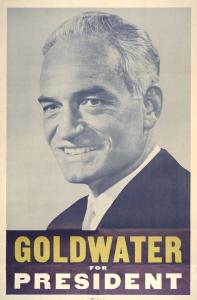
This is the third part of A New Politics in America. Part 1 looked at the Civil Rights movement and the White Backlash; Part 2 examined the impact of the economic crisis of the 1970s; Part 3 discusses the decline in American power, and then turns back to look at how all three elements contributed to the growth of a New Right from the 1960s to the 1980s.
The United States: A Declining World Power
While the United States remained a world power—and the greatest military power on earth after the fall of the Soviet Union in 1991—U.S. military might did not necessarily always lead to military victory and modern weapons could not always ensure its place as the leading world power.
By: Dan La BotzMarch 15, 2016

This is the second part of an article about the new politics in America today. The first part can be found here.
Deindustrialization and Downsizing Gut the Labor Movement
The second development that led to a new far right was the economic crisis of the 1970s, or, to be specific, the two recessions of the 1974-75 and 1979-82. These two downturns caused employers to close steel mills, auto plants and other manufacturing plants throughout the Northeast and the Midwest with a devastating impact on the working class and on the labor movement.
By: Dan La BotzMarch 14, 2016

This is the first part of an article about the new politics in America today.
The presidential election campaign of 2016 represents a turning point in American politics, raising issues and political agendas that would have been unthinkable in the United States only a few years ago. The major media and the public debate whether or not Republican Donald Trump is a fascist, while at the same time there is a discussion about whether Democrat Bernie Sanders’ version of democratic socialism is the answer to the country’s problems. Trump’s political rallies have, at his instigation, become violent and he now threatens to send his followers to disrupt Sanders’ rallies.
Countering the Confederates
 The racist and utterly reactionary Republican legislative majorities that dominate the South are on an aggressive march this legislative session. From Texas to Florida, Arkansas to Virginia, and all the states in-between, they are employing cut-throat strategies and tactics to pass a package of regressive, exploitative and outright anti-human legislation drawn up by the likes of ALEC (the American Legislative Exchange Council)[1] and other right-wing think tanks. They are attacking the right to vote, Black voting districts, the right to education, access to housing, workers rights to organize themselves, wage protections, alternative energy plans, marriage equality, and the list goes on.
The racist and utterly reactionary Republican legislative majorities that dominate the South are on an aggressive march this legislative session. From Texas to Florida, Arkansas to Virginia, and all the states in-between, they are employing cut-throat strategies and tactics to pass a package of regressive, exploitative and outright anti-human legislation drawn up by the likes of ALEC (the American Legislative Exchange Council)[1] and other right-wing think tanks. They are attacking the right to vote, Black voting districts, the right to education, access to housing, workers rights to organize themselves, wage protections, alternative energy plans, marriage equality, and the list goes on.
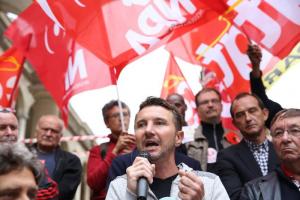
The following piece was written for Kojkkino, the theoretical magazine of the Greek organization DEA. Though quite long, it does not claim to cover all sides of the question. Indeed, it’s the kind of article that is never really finished and that has to be constantly reworked and supplemented. Its main objective is to stimulate collective thinking about the lessons of the successes and failures of the NPA from its birth to the present day.
Radical Left organizations in Europe have tended to focus their attention on the major political and electoral experiences that have stood out in the recent period – beginning with Syriza in Greece, Podemos in the Spanish State and the Left Bloc in Portugal, and often also including Die Linke in Germany, Rifondazione Comunista in Italy, the Red-Green Alliance in Denmark (RGA) and others. This is entirely justified. Still, other attempts at “doing something new” merit analysis, even where their successes were fewer or shorter-lived. They provide food for thought about a broader range of national contexts.

A while ago, I wrote a piece here that, among other things, argued that if Bernie Sanders were to lose the Democratic primary he should not, as he has promised several times to do, support Hillary Clinton for President. Many people on the Left, most recently Chris Hedges in an article for Truthdig, have argued that this promise makes Sanders a wolf-in-sheep’s clothing for the Left, and that he will inevitably betray the movement supporting him and the ideals he has campaigned on. For Hedges and others, this promise (along with running as a Democrat) is precisely why the Left should not be supporting Sanders and his campaign at all. While I disagree with Hedges that we should not support Sanders because of this promise, we should absolutely be wary of the likely possibility that he will keep this terrible promise; Sanders if anything has a tendency to keep his word. This is what he is known for, after all—being the rare honest politician.

The Sanders campaign has certainly sharpened the contradictions, hasn’t it? It’s been very clarifying to see Hillary Clinton and her surrogates running against single-payer and free college, with intellectual cover coming from Paul Krugman and Vox. Expectations, having been systematically beaten down for 35 years, must be beaten down further, whether it’s Hillary saying that to go to college one needs some “skin in the game,” or Rep. John Lewis reminding us that nothing is free in America. A challenge from the left has forced centrist Democrats to reveal themselves as proud capitalist tools.
 Antonia Hinojos Hernandez is in a race against time. Known to her friends as “Tonita,” the Ciudad Juarez mayoral hopeful has until March 7 to gather nearly 30,000 signatures from eligible voters so her name can appear on the June ballot as an independent candidate.
Antonia Hinojos Hernandez is in a race against time. Known to her friends as “Tonita,” the Ciudad Juarez mayoral hopeful has until March 7 to gather nearly 30,000 signatures from eligible voters so her name can appear on the June ballot as an independent candidate.
A former line worker at a border assembly plant, or maquiladora, Hinojos does not have the infrastructure of a political party, lacks money to pay signature collectors and is missing the endorsements of influential people and media outlets.
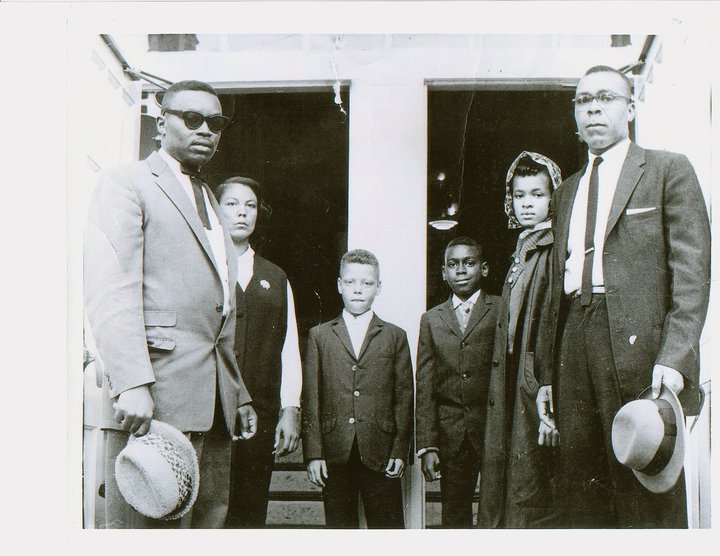
Representative Lewis,
Yesterday, you stated the following about Bernie Sanders’s record on fighting for civil rights in the 1960s:
“I never saw him. I never met him. I was chair of the Student Nonviolent Coordinating Committee for three years, from 1963 to 1966. I was involved with the sit-ins, the Freedom Rides, the March on Washington, the march from Selma to Montgomery and directed (the) voter education project for six years. But I met Hillary Clinton. I met President (Bill) Clinton.”
We are going to ignore the fact that Hillary Clinton was a Goldwater Girl, or that you once stated to a Clinton biographer that, “[t]he first time I ever heard of Bill Clinton was the 1970s,” or that it has already been well-established that Sanders worked with the Congress for Racial Equality (CORE) at the University of Chicago in the 1960s. We are also going to leave aside the fact that every mention of Bill Clinton in your book Walking With The Wind described an instance that he opposed some policy that you cherished.
Instead, we are going to talk about another person that you never saw or met.
review
Agustín Guillamón is a dedicated anarcho-syndicalist activist whose partisanship has not affected his critical sensitivities nor prevented him from graphically outlining what he regards as the errors and inconsistencies of the Spanish libertarian left.
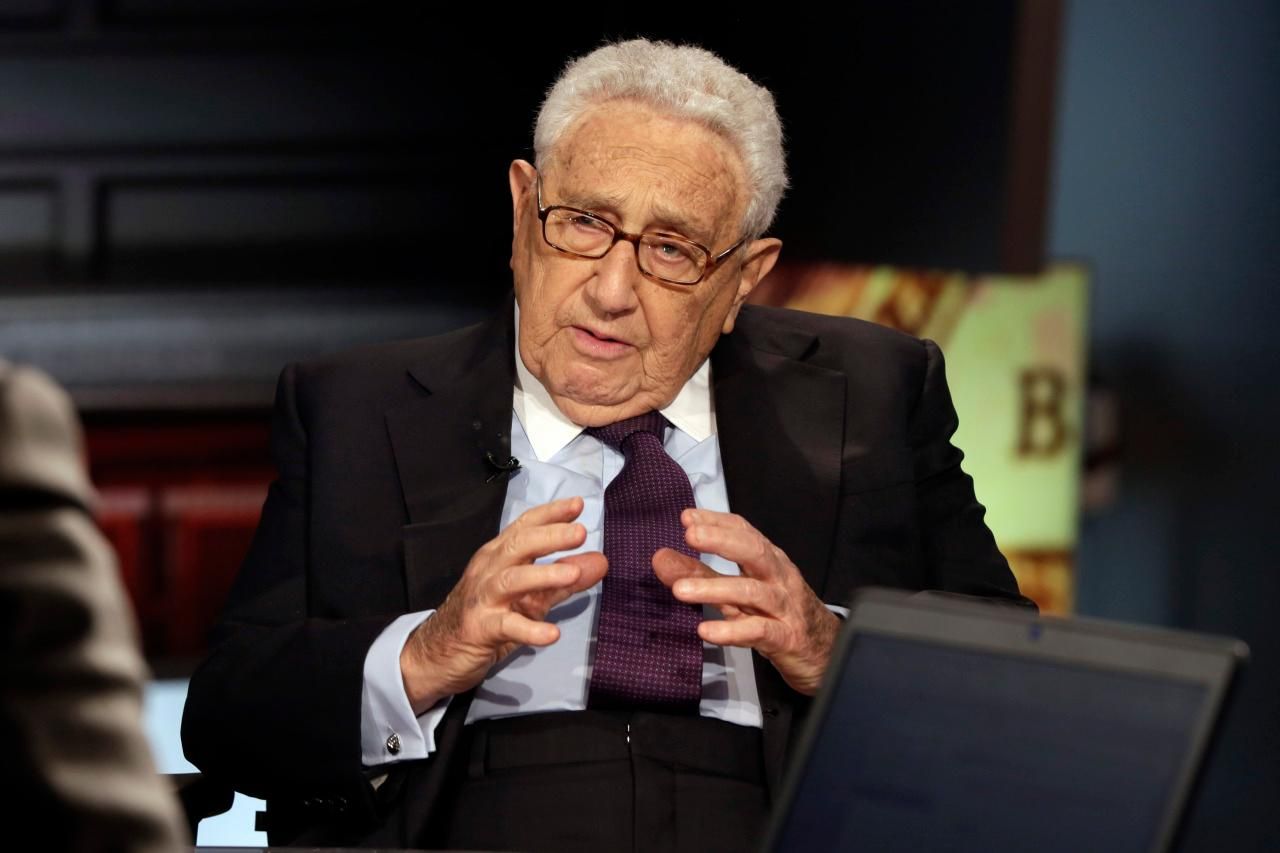
Bernie Sanders’s dropping the hammer on Clinton’s cozying up to the vile genocidaire Henry Kissinger was one of the fist pump moments of the campaign. That’s recognized by pretty much everyone now, so I don’t need to say much about it here.
 Today, a year after the heroic resistance of Kobani made it to the world news, it is hardly necessary to give an introduction to the Kurdish struggle, which has now taken a central place in the imagination of the international left, both vanguardist and anti-authoritarian.
Today, a year after the heroic resistance of Kobani made it to the world news, it is hardly necessary to give an introduction to the Kurdish struggle, which has now taken a central place in the imagination of the international left, both vanguardist and anti-authoritarian.
 The siege of Kobani by Islamic State (ISIS) brought worldwide attention to the Syrian Kurdish PYD (Partiya Yekîtiya Demokrat, Democratic Union Party), the leading force in the Kurdish-majority areas in northern Syria. The PYD calls this region Rojava—literally meaning “land of the sunset” but also translated as “West Kurdistan.”
The siege of Kobani by Islamic State (ISIS) brought worldwide attention to the Syrian Kurdish PYD (Partiya Yekîtiya Demokrat, Democratic Union Party), the leading force in the Kurdish-majority areas in northern Syria. The PYD calls this region Rojava—literally meaning “land of the sunset” but also translated as “West Kurdistan.”
A Historical Perspective
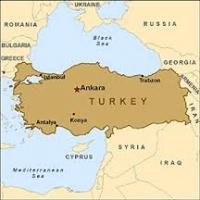 In a June 2015 election, the new People’s Democracy Party (HDP) of Turkey passed a highly undemocratic 10 percent threshold to enter the Turkish parliament.
In a June 2015 election, the new People’s Democracy Party (HDP) of Turkey passed a highly undemocratic 10 percent threshold to enter the Turkish parliament.
 Senator Bernie Sanders’ run for the Democratic Party nomination for president has certainly energized thousands. It has also rekindled an old debate on the American left that revolves around the question: Should the left join, endorse, support, or work for campaigns in the Democratic Party?
Senator Bernie Sanders’ run for the Democratic Party nomination for president has certainly energized thousands. It has also rekindled an old debate on the American left that revolves around the question: Should the left join, endorse, support, or work for campaigns in the Democratic Party?
 Some months ago I responded to a piece that appeared on the New Politics blog by my longtime fellow NP editorial board member and friend Barry Finger.1 In my own blog, I argued that Barry had a better, more sophisticated understanding of the peculiarities of the Democratic Party and the U.S.
Some months ago I responded to a piece that appeared on the New Politics blog by my longtime fellow NP editorial board member and friend Barry Finger.1 In my own blog, I argued that Barry had a better, more sophisticated understanding of the peculiarities of the Democratic Party and the U.S.
Winter 2016 (New Politics Vol. XV No. 4, Whole Number 60)
 The Bernie Sanders campaign in the Democratic Party has attracted the support of millions, raised an economic reform program such as we have not seen in decades, and has led to a national discussion about the nature of socialism. At the same time, he has ceased to be an independent, has joined the Democratic Party, and has promised to support its nominee, in all likelihood Hillary Clinton. This has led to much discussion and debate on the left. New Politics has solicited two articles from different points of view on the Sanders campaign, one by our co-editor Jason Schulman and the other by Lance Selfa and Ashley Smith of the International Socialist Organization.
The Bernie Sanders campaign in the Democratic Party has attracted the support of millions, raised an economic reform program such as we have not seen in decades, and has led to a national discussion about the nature of socialism. At the same time, he has ceased to be an independent, has joined the Democratic Party, and has promised to support its nominee, in all likelihood Hillary Clinton. This has led to much discussion and debate on the left. New Politics has solicited two articles from different points of view on the Sanders campaign, one by our co-editor Jason Schulman and the other by Lance Selfa and Ashley Smith of the International Socialist Organization.
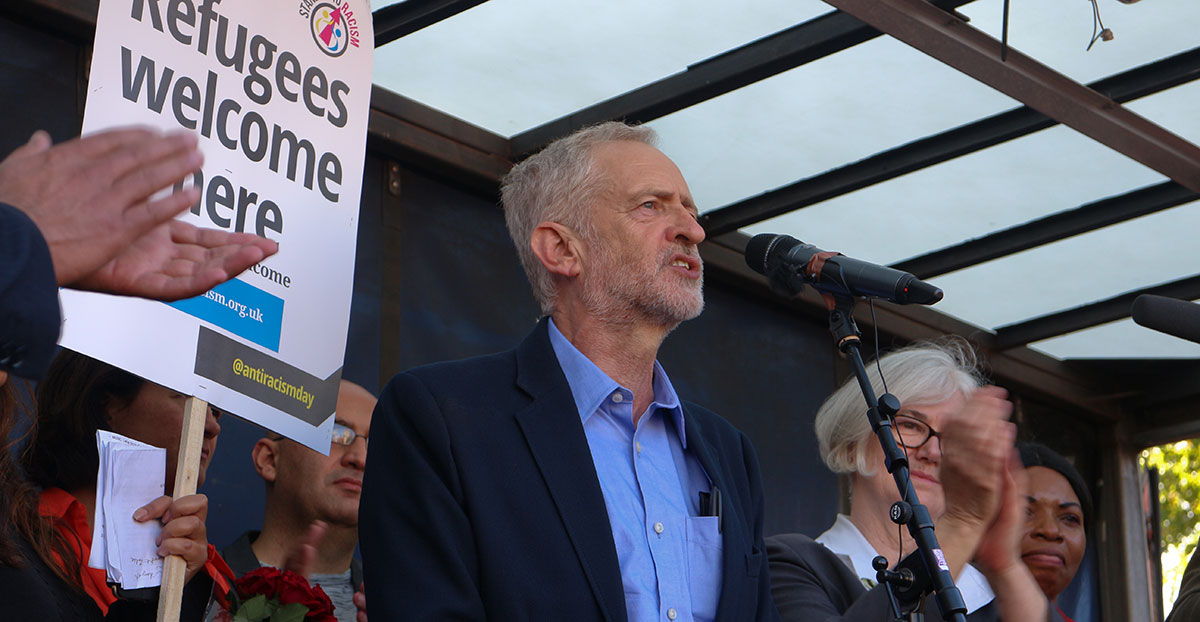
Leo: Your remarkable campaign for the leadership not only doubled the party membership but galvanised some 400,000 people overall to associate with the party. This is frankly unheard of anywhere in terms of party mobilisation on the left in recent decades. What do you think this reflects about the possibilities for a new politics, not only in Britain but more broadly – especially in Europe?
Jeremy: I think our campaign excited people who were very depressed by the election result and very depressed by the analysis that was being offered at the end of it, which was essentially that Labour wasn’t managerial enough and we had to be better managers in order to do better in the future. I only really got on the ballot paper because of a combination of people – from those who just absolutely wanted an alternative to be put, to those who thought that there ought to be a democratic debate in the party. This kicked off the social media campaign that encouraged others to get involved.
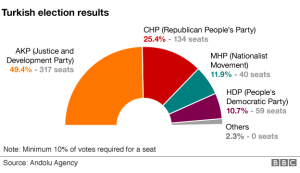
The November 2015 snap elections in Turkey have given back to the governing Justice and Development Party (AKP) the parliamentary majority that it lost just a few months ago, in the June 2015 elections. However, the election results can neither resolve the crisis of Turkey’s authoritarian and neoliberal order, which is being challenged by the spirit of Gezi Park and new developments in the Kurdish movement nor obscure its complexity.
The Socialist Left and Elections
By: Saulo ColonDecember 17, 2015
In this article I will analyze the current situation of the Left in Spain, ahead of the forthcoming December 20, 2015 General Elections, by considering how four of its political actors (United Left, Podemos, The Municipalist Platforms and Anti-capitalist Left) have shaped their strategies and agendas in response to the political changes that the 15M Indignados movement brought about.

Even a somewhat cynical 71 year old socialist like me could be thrilled to see Bernie Sanders talking about the need for an American political revolution on MSNBC. To be honest, I’m not sure that I ever expected to see a leading presidential candidate say we need a revolution on prime time TV.
When Bernie Sanders says we need a political revolution, he’s mostly talking about turning many thousands of new people out to vote. That would obviously be a very good thing. It’s just not enough to win the meaningful social changes that would add up to a political revolution.



 The racist and utterly reactionary Republican legislative majorities that dominate the South are on an aggressive march this legislative session. From Texas to Florida, Arkansas to Virginia, and all the states in-between, they are employing cut-throat strategies and tactics to pass a package of regressive, exploitative and outright anti-human legislation drawn up by the likes of ALEC (the American Legislative Exchange Council)[1] and other right-wing think tanks. They are attacking the right to vote, Black voting districts, the right to education, access to housing, workers rights to organize themselves, wage protections, alternative energy plans, marriage equality, and the list goes on.
The racist and utterly reactionary Republican legislative majorities that dominate the South are on an aggressive march this legislative session. From Texas to Florida, Arkansas to Virginia, and all the states in-between, they are employing cut-throat strategies and tactics to pass a package of regressive, exploitative and outright anti-human legislation drawn up by the likes of ALEC (the American Legislative Exchange Council)[1] and other right-wing think tanks. They are attacking the right to vote, Black voting districts, the right to education, access to housing, workers rights to organize themselves, wage protections, alternative energy plans, marriage equality, and the list goes on. 





 Today, a year after the heroic resistance of Kobani made it to the world news, it is hardly necessary to give an introduction to the Kurdish struggle, which has now taken a central place in the imagination of the international left, both vanguardist and anti-authoritarian.
Today, a year after the heroic resistance of Kobani made it to the world news, it is hardly necessary to give an introduction to the Kurdish struggle, which has now taken a central place in the imagination of the international left, both vanguardist and anti-authoritarian. The siege of Kobani by Islamic State (ISIS) brought worldwide attention to the Syrian Kurdish PYD (Partiya Yekîtiya Demokrat, Democratic Union Party), the leading force in the Kurdish-majority areas in northern Syria. The PYD calls this region Rojava—literally meaning “land of the sunset” but also translated as “West Kurdistan.”
The siege of Kobani by Islamic State (ISIS) brought worldwide attention to the Syrian Kurdish PYD (Partiya Yekîtiya Demokrat, Democratic Union Party), the leading force in the Kurdish-majority areas in northern Syria. The PYD calls this region Rojava—literally meaning “land of the sunset” but also translated as “West Kurdistan.”  In a June 2015 election, the new People’s Democracy Party (HDP) of Turkey passed a highly undemocratic 10 percent threshold to enter the Turkish parliament.
In a June 2015 election, the new People’s Democracy Party (HDP) of Turkey passed a highly undemocratic 10 percent threshold to enter the Turkish parliament. Senator Bernie Sanders’ run for the Democratic Party nomination for president has certainly energized thousands. It has also rekindled an old debate on the American left that revolves around the question: Should the left join, endorse, support, or work for campaigns in the Democratic Party?
Senator Bernie Sanders’ run for the Democratic Party nomination for president has certainly energized thousands. It has also rekindled an old debate on the American left that revolves around the question: Should the left join, endorse, support, or work for campaigns in the Democratic Party? Some months ago I responded to a piece that appeared on the New Politics blog by my longtime fellow NP editorial board member and friend Barry Finger.1 In my own blog, I argued that Barry had a better, more sophisticated understanding of the peculiarities of the Democratic Party and the U.S.
Some months ago I responded to a piece that appeared on the New Politics blog by my longtime fellow NP editorial board member and friend Barry Finger.1 In my own blog, I argued that Barry had a better, more sophisticated understanding of the peculiarities of the Democratic Party and the U.S. The Bernie Sanders campaign in the Democratic Party has attracted the support of millions, raised an economic reform program such as we have not seen in decades, and has led to a national discussion about the nature of socialism. At the same time, he has ceased to be an independent, has joined the Democratic Party, and has promised to support its nominee, in all likelihood Hillary Clinton. This has led to much discussion and debate on the left. New Politics has solicited two articles from different points of view on the Sanders campaign, one by our co-editor Jason Schulman and the other by Lance Selfa and Ashley Smith of the International Socialist Organization.
The Bernie Sanders campaign in the Democratic Party has attracted the support of millions, raised an economic reform program such as we have not seen in decades, and has led to a national discussion about the nature of socialism. At the same time, he has ceased to be an independent, has joined the Democratic Party, and has promised to support its nominee, in all likelihood Hillary Clinton. This has led to much discussion and debate on the left. New Politics has solicited two articles from different points of view on the Sanders campaign, one by our co-editor Jason Schulman and the other by Lance Selfa and Ashley Smith of the International Socialist Organization.

